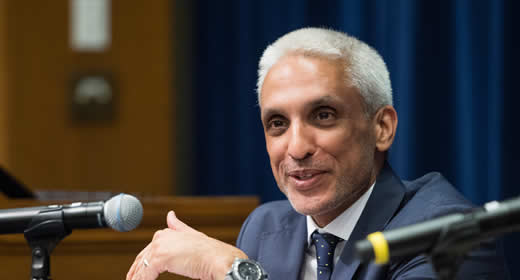
The Easter bombings in Sri Lanka have been claimed by the Islamic State, despite the formal borders of the caliphate no longer holding Iraq and Syria. On April 24, 2019, Washington Post reporters Shane Harris, Ellen Nakashima, Souad Mekhennet, and Joanna Slater published an article exploring the issue, “Sri Lankan Easter bombings, claimed by ISIS, show the group maintains influence even though its caliphate is gone.”
Javed Ali, a Towsley Policymaker in Residence, shared his perspective with the Post, stating that “even they will accede to the notion that the physical caliphate, at least in Iraq and Syria, is gone,” going on to note that this hasn’t halted activity. The need for centralized hubs has, apparently, proven unnecessary for the growth of such groups. ISIS has built itself on the work and interest of global extremist groups. Despite President Trump’s repeated insistence that the caliphate has been destroyed (a claim he’s been making since March, when U.S.-backed forces took control of the final Islamic State controlled territory), these international affiliates remain active.
Ali, who previously acted as senior director for counterterrorism at the National Security Council under Trump, hammered down on this point. “The notion of the Islamic State still exists. You don’t need a physical caliphate to be beholden to the group.”
Read the full story here.
Javed Ali is a Harry A. and Margaret D. Towsley Policymaker in Residence at the Ford School for the fall 2019 semester, returning after his first semester in fall 2018. He is a former Senior Director for Counterterrorism at the National Security Council (NSC), who has over twenty years of professional experience in national security and intelligence issues in Washington, D.C., and began his federal government career in 2002.